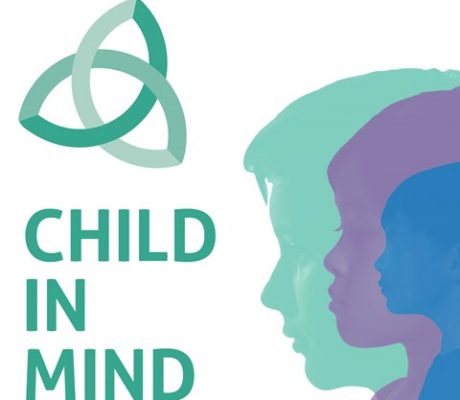So the summer is coming towards a close and festival season is almost done which means for some the marker of the time in which they need to prepare to start or go back to University or College.
This is a time for so much challenge, growth and change which can be exciting but can also be daunting to navigate through.
We are all uniquely different and will be arriving at higher education from a variety of backgrounds and experiences of life so far…….
Its important to acknowledge that these changes and your reactions to these changes are happening but they can be supported if you are finding some aspects hard. Life sadly and gladly has no manual and none of us are equipped for every challenge but the good news is that we can all learn and build what we term ‘Resilience’ to managing the stresses and experience life long learning from the challenges on offer.
We can sometimes feel isolated in the belief that no one else is struggling and everyone else is having the time of their lives. The truth is that many will be struggling in similar or different ways to you and amongst your peers there will be those who are exploring new ways to navigate the challenges. Sharing and talking to normalise what you are feeling can be really helpful. The joy of realising ‘oh you too?!’ can be very freeing. If you would some support then do consider the following options. If this is the first time in your life you have reached out for help then great! Congratulations, you are human and this first step is an excellent way of caring for yourself!
Mature students (I’ve been one!)- You are fantastic! You might be faced with unique challenges from younger students through juggling home and being a student again or for the first time. Do seek support if you need it.
- Most university’s now have student help lines and counselling services. Some run group therapy tailored to specific difficulties eg exam stress, anxiety.
- Mentors- Do you have a mentor? can you get one? if you cant talk to yours , can you get referred to a different one?
- Charities- there are some young peoples’ counselling charities that offer free or discounted places for students, including addiction services
- Doctor- Register with your local doctor and talk to them about what you are experiencing , they may put you in touch with some local help or counselling therapy.
- Private therapy. Some therapists offer lower cost counselling rates for students. I have some concessionary places for students at £25 per hour. I see students studying at University/College in Bristol, Exeter, Totnes and Kingsbridge.
- Other Helplines-NHS 111Samaritans – Free Phone : 116 123 open 24hrsSaneline Local rate or inclusive in mobile free minutes:
0300 304 7000 open 6-11pm everydayMindLine telephone helpline – out of hours confidential listening service
Freephone: 0808 808 0330
Wednesday to Sunday, 8:00 PM to MidnightBristol Crisis team24/7- mental health experts- 0300 555 0334
Some common issues students may bring to Counselling Therapy
- Difficulties with the transition from home to a new place of living
- Anxiety- a variety of
- Depression
- Difficulties with managing feelings
- Self harming behaviours- inc problems with eating
- Relationships and social difficulties
- Stress and pressure inc worries about their future
- Isolation
- Identity
- Sexuality
- Spirituality
- Returning to education and the unique challenges for mature students
Building Resilience-what is it?
Resilience is term we can use to describe the development of skills and perspectives that help us in the face of stresses and challenges. We can learn how to manage our feelings rather than getting buffeted around feeling helpless to know what to do.
We can build resilience in the following ways :
- Lifestyle changes and well-being- Feeding our bodies with the nutrients they need for resistance to infection and hormone regulation, getting enough sleep to rest our minds, exercising for endorphin’s, fitness, health and feeling good about our bodies. Learning to make time to relax and maybe learning new ways to relax that are different from those methods learned as a child/teenager and methods on a budget.
- Building self-awareness- learning to understand ourselves- ‘Being true to yourself’ . Exploring about what contributes to us feeling negative and doing less of it or cutting it out all together or looking at how you can develop a new relationship with that negativity. Self awareness can be gained through writing, talking to others, taking to a therapist, reading self help books or exploring creatively through art how you feel.
- Mindfulness- Learn to develop a new relationship with our thoughts through the practice of mindfulness. Mindfulness is not just meditation , its learning a new attitude towards our thoughts and using methods to ground ourselves in the ‘here and now’ to provide relief from the constant thought ‘chatter’. Its not blocking out thoughts, rather its a skill of noticing thoughts rather than getting totally ‘on-board’ with them and feeling overwhelmed. Mindfulness is something you do and scientists are discovering more and more how this practice can alter the structure of the brain in a positive way. To start with mindfulness try Headspace .Or join a local mindfulness group/course. Books by jon kabat-zinn are good and I would personally recommend ‘A guide to Mindfulness for the Frazzled’ by Ruby Wax as a funny but sound introduction.
- Building an attitude of self compassion, gratitude and kindness. Treating ourselves as we would a friend and thinking of ourselves with compassion is not selfish, its essential to mental well-being. It has been suggested that our brains are tuned to jump to the negatives for primitive survival but the good news is that we can carve out new neural pathways in our brains by practising gratitude in our daily lives. I would recommend the book ‘The happiness Advantage’ by Shawn Achor which is all about how to do this based on resent research at Harvard University.
Friends and family of those what are starting/going back to University
This time of change and uncertainty can be hard for those supporting students and students leaving home for the first time. It can offer up new challenges and changes to family dynamics as well as feelings of loss and transition. So you too might need to do some of your own self care and resilience work as well as seeking support if you need it. You can support your family/friend though being a good solid base for them to come back to physically as well and mentally. Stay open to listening to their experiences and try to not judge them. Try and empathise with this time in their lives and encourage them to be uniquely themselves!
For more information or advice please do get in touch. I hope this article has been helpful as a guide to where to receive support and how to build resilience to the challenges you might be currently facing as a student.






